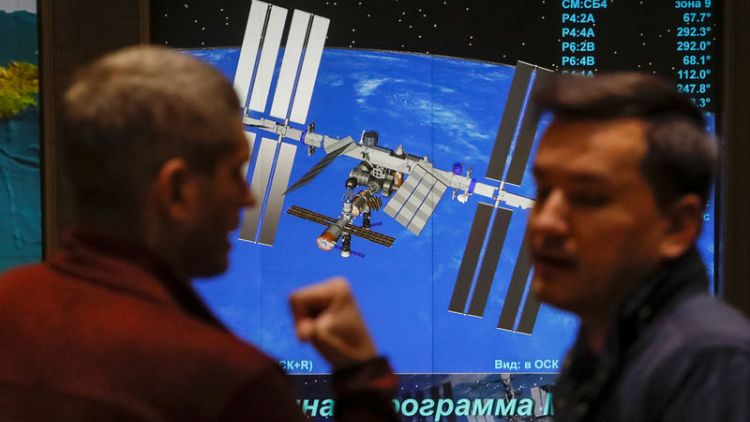MOSCOW (Reuters) - The abortive launch last month of a manned Soyuz mission to space was caused by a sensor damaged during the rocket's assembly at the cosmodrome in Kazakhstan, Russian investigators said on Thursday.
A Russian cosmonaut and U.S. astronaut were forced to abort their mission on Oct. 11 after a rocket bound for the International Space Station (ISS) failed, sending them plunging back to Earth in an emergency landing.
Presenting findings of an official inquiry into the accident, chief investigator Igor Skorobogatov said two more Soyuz rockets might have the same defect and that additional checks were being introduced into the rocket assembly process.
The mishap occurred as the first and second stages of a Russian booster rocket separated around two minutes after liftoff from Kazakhstan's Soviet-era cosmodrome of Baikonur.
"The reason for the abnormal separation ... was due to a deformation of the stem of the contact separation sensor...," Skorobogatov told reporters.
"It has been proven, fully confirmed that this happened specifically because of this sensor, and that could only have happened during the package's assembly at the Baikonur cosmodrome," he said.
The accident was the first serious launch problem experienced by a manned Soyuz space mission since 1983, when a crew narrowly escaped before a launchpad explosion.
Russian space agency Roscosmos said on Wednesday it hoped to launch its first manned mission since the accident on Dec. 3.
The launch had been planned for mid-December, but senior Roscosmos official Sergei Krikalyov said they hoped to bring it forward so that the ISS is not switched to autopilot when the current three-man crew on board leave.
(Reporting by Tom Balmforth; Editing by Mark Heinrich)
